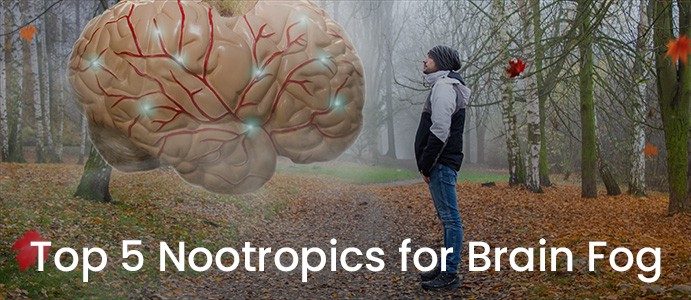
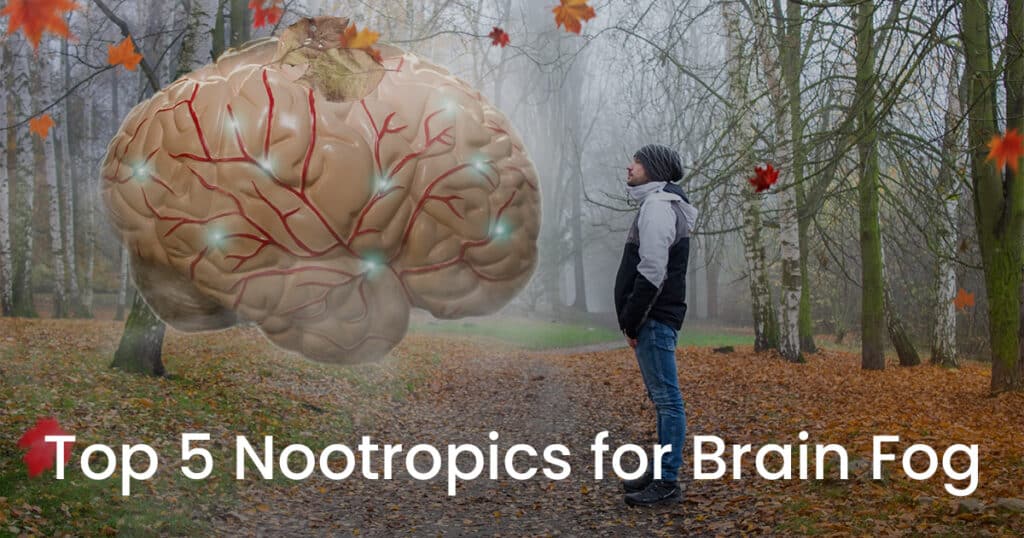
I. Introduction
Brain fog, a term often used colloquially, describes a state of mental confusion, forgetfulness, lack of focus, and mental clarity. It feels as if a cloud hovers over your mind, making it challenging to think clearly or recall information. While not a medical condition in itself, brain fog can be a symptom of underlying issues or the result of a hectic lifestyle.
In our fast-paced world, where multitasking is commonplace, many individuals seek solutions to sharpen their minds. Nootropics, encompassing a variety of substances, have gained attention for their potential cognitive benefits. However, while some studies suggest benefits, the evidence remains mixed, necessitating further research.
II. Understanding Brain Fog
Addressing brain fog with nootropics requires a deep understanding of its causes. Brain fog isn’t uniform; its origins can vary:
- Low Energy: Just as a car struggles to perform without fuel, our brains need the energy to function optimally. Factors like poor diet, lack of exercise, or irregular sleep patterns can deplete our energy reserves, leading to mental fatigue[1]Healthline. (n.d.). Can not enough nutrients cause brain fog? Retrieved from https://www.healthline.com/nutrition/can-not-enough-nutrients-cause-brain-fog.
- Sleep Deprivation: A consistent lack of restorative sleep can severely impact cognitive function. The brain uses sleep to repair and rejuvenate itself, and without it, mental clarity can quickly diminish[2]Healthline. (n.d.). Foggy Brain and Lack of Sleep. Retrieved from https://www.healthline.com/health-news/foggy-brain-lack-of-sleep..
- Stress: Chronic stress releases cortisol, a hormone that, in high amounts, can interfere with memory and concentration[3]Goldin, D. S. (2022, January 7). What Everyone Should Understand About Brain Fog. Psychology Today..
- Poor Nutrition: The brain requires specific nutrients to operate efficiently. A diet lacking in essential vitamins, minerals, and fatty acids can contribute to decreased cognitive function[4]Healthline. (n.d.). Can Not Enough Nutrients Cause Brain Fog? Retrieved from https://www.healthline.com/nutrition/can-not-enough-nutrients-cause-brain-fog.
- Underlying Medical Conditions: Conditions like hypothyroidism, chronic fatigue syndrome, or depression can manifest as brain fog[5]Goldin, D. S. (2022, January 7). What Everyone Should Understand About Brain Fog. Psychology Today..
While some believe that nootropics can provide a boost to those experiencing brain fog, it’s essential to approach this with caution. The effectiveness of nootropics varies, and while some individuals may experience benefits, others may not. As always, understanding the root cause of brain fog and addressing it holistically is the most effective approach.
III. What are Nootropics?
Often dubbed “smart drugs” or “cognitive enhancers,” nootropics cover a broad spectrum of substances that may influence cognitive function. Their potential is intriguing, but the science behind them is still in its infancy.
While certain compounds within the realm of nootropics have undergone extensive research and have shown promise, it’s crucial to approach this field with a discerning eye. The research on nootropics is still in its early stages, and more studies are needed to ascertain their safety, efficacy, and the full scope of their impact on cognitive function.
Furthermore, the effects of nootropics are not universal. They can vary significantly based on individual factors such as age, genetics, health status, and even lifestyle. This variability underscores the importance of personalized approaches when considering nootropic supplementation and the need for further research to understand these individual differences better.
IV. Top Nootropics for Brain Fog
Adrafinil
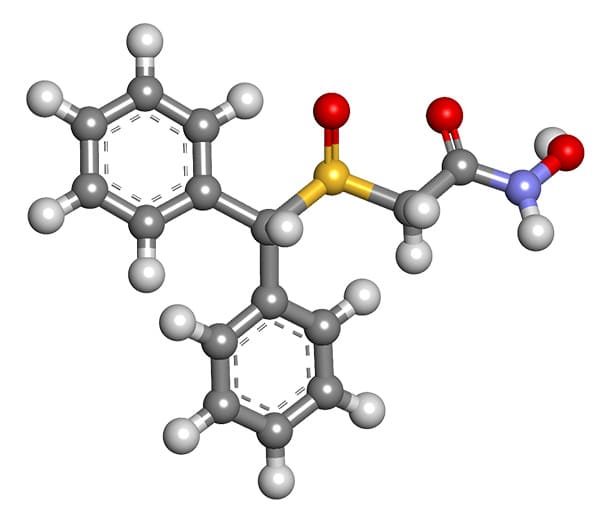
Adrafinil is a synthetic compound that acts as a prodrug for Modafinil. Initially developed for narcolepsy and other sleep disorders, it’s noteworthy that Adrafinil is not currently FDA-approved for any medical condition. As with all nootropics, consulting with a healthcare professional before its use is paramount.
Noopept
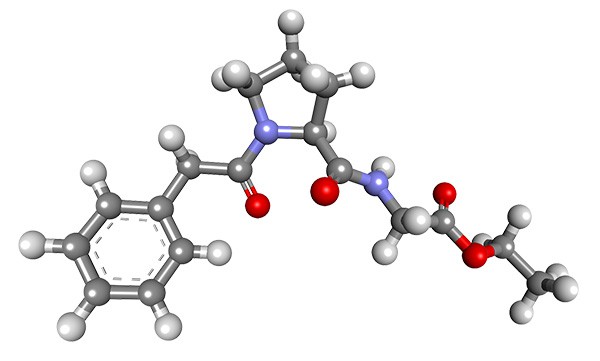
Noopept, a synthetic peptide, is recognized for its potential neuroprotective benefits[6]Ostrovskaya, R. U., Gudasheva, T. A., Zaplina, A. P., Rozantsev, G. G., Skoldinov, A. P., Trofimov, S. S., … & Voronina, T. A. (2014). Neuroprotective effect of novel cognitive enhancer noopept on AD-related cellular model involves the attenuation of apoptosis and tau hyperphosphorylation. Journal of Biomedical Science, 21(1), 74.. Some studies suggest these benefits, but the research on Noopept’s neuroprotective effects remains in its preliminary stages. Comprehensive studies are essential to fully grasp its impact on brain health.
Modafinil
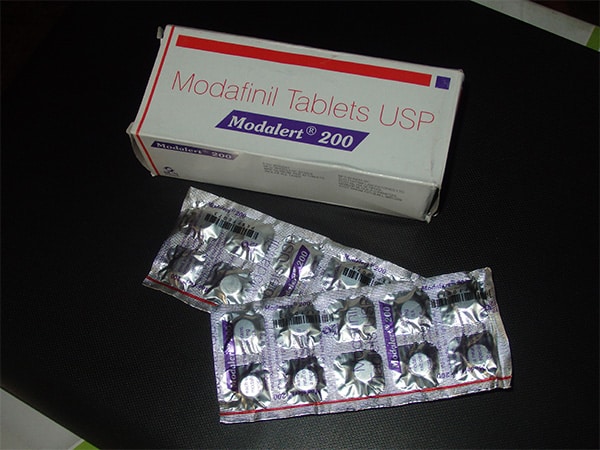
Modafinil, a prescription drug, is known for its wakefulness-promoting properties. It’s commonly prescribed for sleep disorders like narcolepsy[7]Neuro.psychiatryonline.org. (n.d.). Dose Effects of Modafinil in Sustaining Wakefulness in Narcolepsy. Retrieved from https://neuro.psychiatryonline.org/doi/full/10.1176/jnp.17.3.405. However, potential users should be aware of possible side effects, including anxiety, insomnia, and headaches. Consulting with a doctor before starting Modafinil is crucial.
Ashwagandha

Ashwagandha, an adaptogenic herb rooted in Ayurvedic medicine, is believed to help the body manage stress[8]Human Ethics. (n.d.). Ashwagandha, an adaptogenic Ayurvedic herb, has been often used to combat and reduce stress and thereby enhance general well-being. Retrieved from https://www.ncbi.nlm.nih.gov/pmc/articles/PMC6979308/. Some studies suggest cognitive benefits, but the research on Ashwagandha’s effectiveness in cognitive function remains inconclusive. Further research is needed to determine its full potential.
Rhodiola Rosea
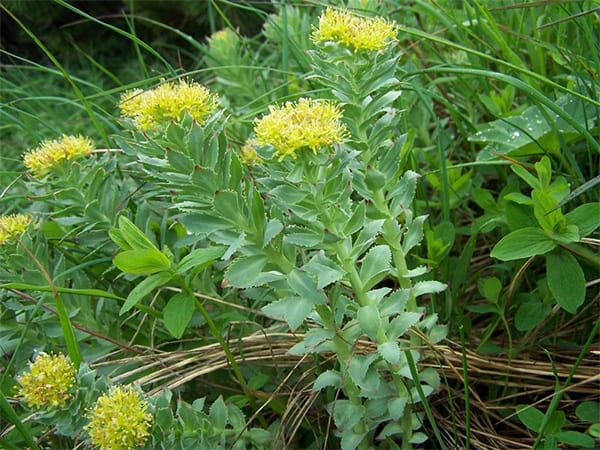
Rhodiola rosea, another adaptogenic herb, is believed to combat fatigue and enhance mental clarity[9]Ishaque, S., Shamseer, L., Bukutu, C., & Vohra, S. (2012). Rhodiola rosea for physical and mental fatigue: a systematic review. BMC Complementary Medicine and Therapies, 12(1), 70.. Traditionally used for these purposes, the scientific research on Rhodiola rosea’s effectiveness for cognitive enhancement is also inconclusive. More studies are needed to confirm its efficacy.
V. How to Choose the Right Nootropic
Determine Your Needs:
Identify your objectives before exploring nootropics. Whether you aim to improve focus, boost memory, or alleviate stress, understanding your goals can guide your choices.
Research:
With a list of potential nootropics in hand, delve into the research. Seek scientific studies that support the claims made about each substance. Given the variability of nootropic effects based on individual factors, a discerning approach is essential.
Consult a Healthcare Professional:
Always engage with a healthcare professional before starting any new supplement or medication. They can offer guidance on dosage, potential interactions, and possible side effects.
Start Slow:
If you opt to try a nootropic, begin with a low dose to assess your body’s response. It’s more manageable to increase the dose if necessary than to mitigate potential adverse effects from an excessive dose.
Monitor Your Response:
Track your reactions after taking the nootropic. Observing any benefits or side effects can help you evaluate its suitability for you.
VI. Lifestyle Changes to Complement Nootropics
Prioritize Sleep:
Ensuring a consistent sleep schedule with 7-9 hours of restorative sleep can profoundly influence cognitive function. Sleep is foundational for the brain’s repair and rejuvenation processes.
Balanced Diet:
A diet rich in nutrients provides the brain with the essential vitamins and minerals it requires. Incorporate diverse foods like fruits, vegetables, whole grains, lean proteins, and healthy fats.
Regular Exercise:
Engaging in physical activity enhances blood flow to the brain, benefiting cognitive function and mood. Find an enjoyable routine, be it a brisk walk, yoga, or high-intensity training, and maintain it.
Manage Stress:
Chronic stress can impair cognitive function. Discover stress-reducing techniques that resonate with you, from meditation and deep breathing exercises to relaxation.
Stay Hydrated:
Given that the brain is approximately 75% water, hydration is vital for optimal cognitive function. Aim for at least 8 glasses of water daily, and adjust based on activity levels.
VII. Potential Side Effects of Nootropics
Understand the Risks:
Many nootropics are lauded for their cognitive-enhancing benefits, but it’s crucial to recognize that they might also have side effects. The research on the side effects of nootropics is ongoing, and more studies are required to fully grasp the risks and potential adverse reactions linked to these substances.
Common Side Effects:
Some nootropics might cause side effects like headaches, digestive issues, insomnia, and anxiety[10]WholisticResearch. (n.d.). The Side Effects of Nootropics (and How to Avoid Them). WholisticResearch.. It’s vital to understand that these side effects won’t manifest in everyone. The severity and type of side effects can differ widely based on the specific nootropic, dosage, and individual factors.
Drug Interactions:
Nootropics might interact with other medications or supplements you’re taking. Engaging with a healthcare provider before mixing nootropics with other substances is essential. This ensures safety and helps prevent potential adverse interactions, especially if you’re on other medications or supplements.
VIII. Conclusion
Navigating the Nootropic Landscape:
The realm of nootropics presents promising opportunities for those aiming to enhance cognitive function and address issues like brain fog. However, like any supplement or medication, it’s vital to proceed with informed caution.
A Holistic Approach:
Nootropics can offer a cognitive boost, but they shine brightest when integrated into a holistic approach to well-being. This includes a balanced diet, consistent exercise, sufficient sleep, and effective stress management.
Engage with Experts:
When considering the world of nootropics, it’s paramount to engage with a healthcare professional. They can offer tailored guidance, ensuring you make informed health decisions.
Buy Modafinil Online Review Comparison Table
| Product | Company | Quantity | Price | Country | Website |
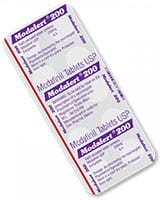 Modalert, Modvigil | modafinilXL | 10 - 500 pills (100 & 200mg) | $29 - $599 |  AU, USA, Worldwide | Visit Website >> |
References
| ↑1 | Healthline. (n.d.). Can not enough nutrients cause brain fog? Retrieved from https://www.healthline.com/nutrition/can-not-enough-nutrients-cause-brain-fog |
|---|---|
| ↑2 | Healthline. (n.d.). Foggy Brain and Lack of Sleep. Retrieved from https://www.healthline.com/health-news/foggy-brain-lack-of-sleep. |
| ↑3, ↑5 | Goldin, D. S. (2022, January 7). What Everyone Should Understand About Brain Fog. Psychology Today. |
| ↑4 | Healthline. (n.d.). Can Not Enough Nutrients Cause Brain Fog? Retrieved from https://www.healthline.com/nutrition/can-not-enough-nutrients-cause-brain-fog |
| ↑6 | Ostrovskaya, R. U., Gudasheva, T. A., Zaplina, A. P., Rozantsev, G. G., Skoldinov, A. P., Trofimov, S. S., … & Voronina, T. A. (2014). Neuroprotective effect of novel cognitive enhancer noopept on AD-related cellular model involves the attenuation of apoptosis and tau hyperphosphorylation. Journal of Biomedical Science, 21(1), 74. |
| ↑7 | Neuro.psychiatryonline.org. (n.d.). Dose Effects of Modafinil in Sustaining Wakefulness in Narcolepsy. Retrieved from https://neuro.psychiatryonline.org/doi/full/10.1176/jnp.17.3.405 |
| ↑8 | Human Ethics. (n.d.). Ashwagandha, an adaptogenic Ayurvedic herb, has been often used to combat and reduce stress and thereby enhance general well-being. Retrieved from https://www.ncbi.nlm.nih.gov/pmc/articles/PMC6979308/ |
| ↑9 | Ishaque, S., Shamseer, L., Bukutu, C., & Vohra, S. (2012). Rhodiola rosea for physical and mental fatigue: a systematic review. BMC Complementary Medicine and Therapies, 12(1), 70. |
| ↑10 | WholisticResearch. (n.d.). The Side Effects of Nootropics (and How to Avoid Them). WholisticResearch. |

Leave a Reply